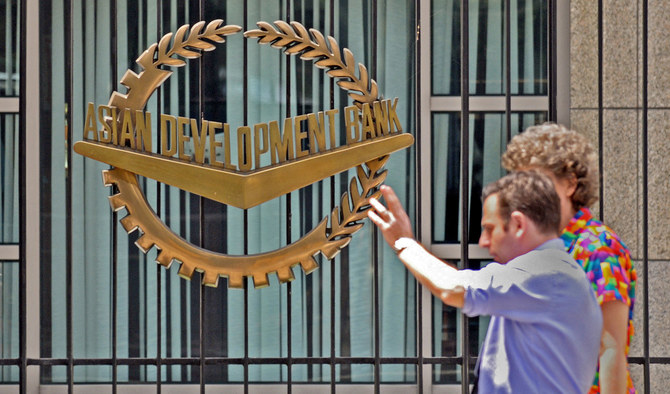ISLAMABAD: Pakistan on Wednesday signed six financing agreements amounting to $1.54 billion with the Asian Development Bank for energy sector reforms and social protection programs, among other sectors.
The financing agreements include a $300 million policy-based loan to support financial, technical and governance reforms to strengthen Pakistan’s energy sector; $385 million financing to improve urban infrastructure in five cities of the northwestern Khyber Pakhtunkhwa province; a $235 million project loan to dualize the 222-KM Shikarpur-Rajanpur Section of Indus Highway (N-55); and a $603 million results-based lending program to strengthen and expand Ehsaas Program.
“Two project readiness facilities for preparing Kurram Tangi Integrated Water Resources Development Project (US$ 5 million) and Khyber Pakhtunkhwa Cities Improvement Investment Project Phase-II (US$ 15 million) were also signed,” the economic affairs ministry said.
Speaking at the signing ceremony, Pakistani minister for economic affairs Omar Ayub Khan said the Khyber Pakhtunkhwa Cities Improvement Project worth $385 million would help the provincial and city governments of the province improve the livability of five cities, namely Abbottabad, Kohat, Mardan, Mingora, and Peshawar, by providing water supply, sewerage, solid waste management and green infrastructure.
“It will also provide institutional support to improve service delivery and performance of municipal companies with special focus on promoting gender-friendly municipal services through empowerment and capacity development,” he said. “The project will benefit up to 3.5 million people in these five target cities of Khyber Pakhtunkhwa. The project also supports the government's development priorities and Prime Minister Imran Khan’s vision of Clean Green Pakistan.”
Khan also highlighted that under the Central Asia Regional Economic Cooperation (CAREC) Corridor Development Investment Program Tranche-II (US$ 235 million), a 222-km Shikarpur-Rajanpur Section of Indus Highway (N-55) would be dualized into a four-lane carriageway, that would traverse the Sindh and Punjab provinces on the western side of Indus River via Kandhkot, Kashmore and Rojhan.
“The dualization of Indus Highway (N-55) will not only boost local economic activities but also promote intra/inter-regional trade and movement of people by improved connectivity and reduced travel time,” Khan said. “Indus Highway provides another international corridor linking China, Afghanistan and their neighboring Central Asian countries to the Arabian Sea. In order to ensure comfort and safety of road users, the section will be equipped with bus shelters, trauma centers and rest areas as well as road safety facilities, he added.”
Khan said the ‘Social Protection Development Program’ would support the government's efforts to implement the Ehsaas Program, including social protection and poverty reduction schemes in line with the vision of Prime Minister of Pakistan Imran Khan.
Shixin Chen, ADB vice president, said despite a challenging situation caused by the COVID-19 pandemic, the government of Pakistan had continued to make progress in implementing comprehensive economic, fiscal and structural reforms.
“He also commended the efforts of Government of Pakistan for addressing socioeconomic challenges and economic recovery amid pandemic,” the statement said. “Chen appreciated the mass vaccination program for controlling the spread of COVID-19 for which ADB also provided US$ 500 million to Pakistan.”















